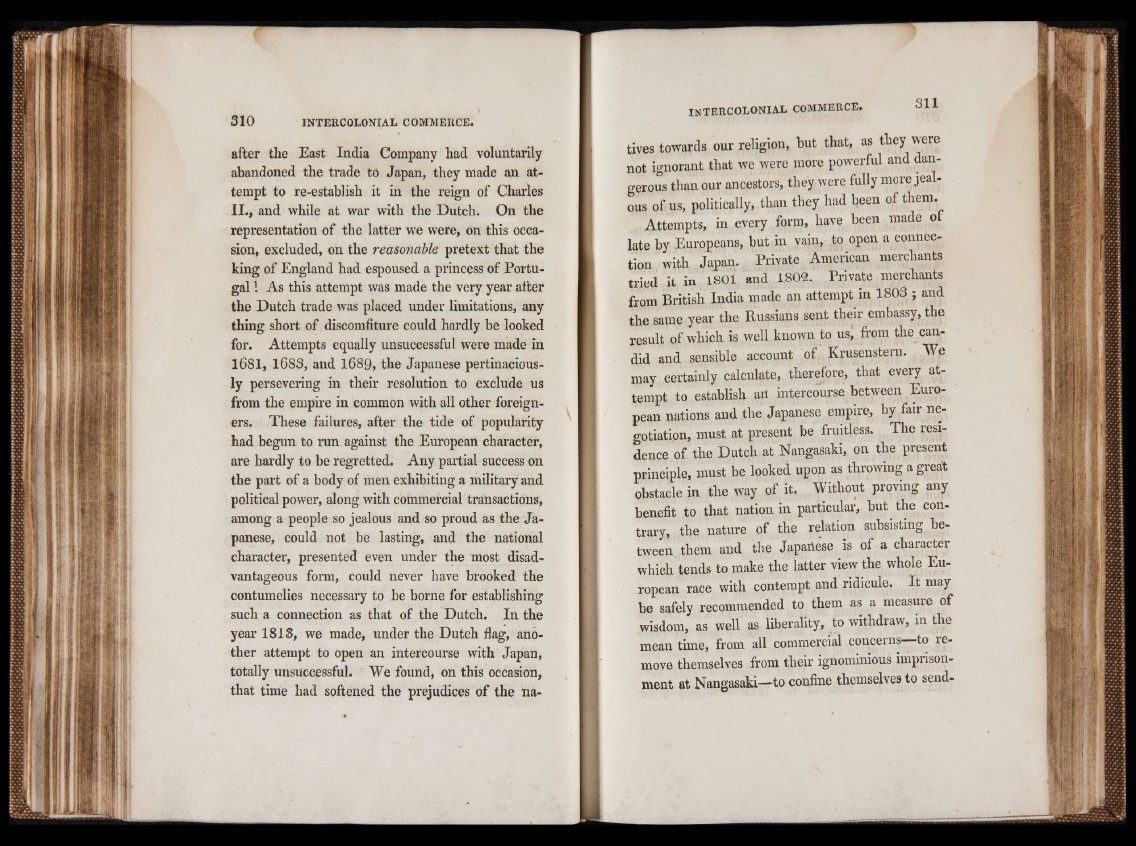
after the East India Company had voluntarily
abandoned the trade to Japan, they made an attempt
to re-establish it in the reign of Charles
II., and while at war with the Dutch. On the
representation of the latter we were, on this occasion,
excluded, on the reasonable pretext that the
king of England had espoused a princess of Portugal
1 As this attempt was made the very year after
the Dutch trade was placed under limitations, any
thing short of discomfiture could hardly be looked
for. Attempts equally unsuccessful were made in
1681, 1683, and 1689, the Japanese pertinaciously
persevering in their resolution to exclude us
from the empire in common with all other foreigners.
These failures, after the tide of popularity
had begun to run against the European character,
are hardly to be regretted. Any partial success on
the part of a body of men exhibiting a military and
political power, along with commercial transactions,
among a people so jealous and so proud as the Japanese,
could not be lasting, and the national
character, presented even under the most disadvantageous
form, could never have brooked the
contumelies necessary to he borne for establishing
such a connection as that of the Dutch. In the
year 1813, we made, under the Dutch flag, another
attempt to open an intercourse with Japan,
totally unsuccessful. We found, on this occasion,
that time had softened the prejudices of the nain
t e r c o l o n ia l c o m m e r c e . 311
tives towards our religion, but that, as they were
not ignorant that we were more powerful and dangerous
than our ancestors, they were fully more jealous
of us, politically, than they had been of them.
Attempts, in every form, have been made ot
late by Europeans, but in vain, to open a connection
with Japan. Private American merchants
tried it in 1801 and 1802. Private merchants
from British India made an attempt in 1803 ; and
the same year the Russians sent their embassy, the
result of which is well known to us^ from the candid
and sensible account of, Krusenstern. We
may certainly calculate, therefore, that every attempt
to establish aii intercourse between European
nations and the Japanese empire, by fair negotiation,
must at present be fruitless. The residence
of the Dutch at Nangasaki, on the present
principle, must be looked upon as throwing a great
obstacle in the way of it. Without proving any
benefit to that nation in particular, but the contrary,
the nature of the relation subsisting between
them and the Japanese is of a character
which tends to make the latter view the whole European
race with contempt and ridicule. It may
be safely recommended to them as a measure of
wisdom, as well as liberality, to withdraw, in the
mean time, from all commercial concerns to remove
themselves from their ignominious imprisonment
at Nangasaki—to confine themselves to send